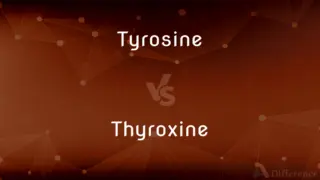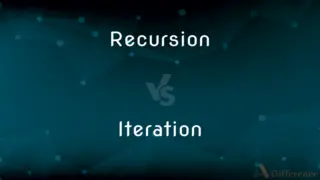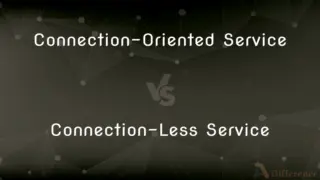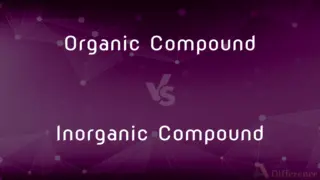Slave vs. Mistress — What's the Difference?
Edited by Tayyaba Rehman — By Maham Liaqat — Updated on April 1, 2024
Slave refers to a person who is the legal property of another and is forced to obey them, while mistress denotes a woman in a position of authority, control, or ownership, or a woman having an illicit relationship with a married man.

Difference Between Slave and Mistress
Table of Contents
ADVERTISEMENT
Key Differences
Slave historically designates individuals compelled into servitude, deprived of personal freedom and rights, and compelled to perform labor or services against their will. The term is deeply rooted in historical contexts of forced labor, where individuals were considered property. Mistress, on the other hand, has a multifaceted meaning; it traditionally referred to a woman in a position of power or authority, often the female head of a household, or it can signify a woman who is in a relationship with, and typically is financially supported by, a married man who is not her husband.
The role of a slave is characterized by lack of autonomy, forced labor, and the absence of personal rights, often under harsh conditions. Slaves were bought, sold, and owned like property. This status is universally considered a grave violation of human rights. Mistresses, in contrast, can wield significant influence or power, either in a domestic context as a female authority figure or within personal relationships where they may or may not hold moral or social approval, depending on cultural norms.
In terms of relationships and societal implications, slaves were subjected to the will and control of their owners, with their status often being involuntary and lifelong, although historical contexts show varied treatments and possibilities for manumission. The relationship between a mistress and her partner, however, is based on personal dynamics that can involve affection, manipulation, or financial arrangements, with societal views on such relationships ranging from acceptance in some historical periods to moral condemnation in others.
While slavery is a status imposed upon individuals, stripping them of freedom and agency, being a mistress involves a complex set of social and personal dynamics. The term mistress may also reflect a woman's autonomy in her personal life choices, despite societal judgments. It's important to note the stark difference in agency between these two roles; one is marked by coercion and exploitation, and the other often involves an element of personal choice, although not always free from exploitation or judgment.
The historical and social contexts surrounding slaves and mistresses differ significantly. Slavery has been a part of many societies throughout history, often involved in systemic racial and economic injustices. The concept of a mistress, while also historical, plays into narratives of gender, power, and morality, reflecting complex interpersonal and societal dynamics.
ADVERTISEMENT
Comparison Chart
Definition
A person legally owned by another and forced to obey them.
A woman in a position of authority, control, or a woman having a relationship with a married man.
Autonomy
None; lives under the control and dictates of the owner.
Variable; may hold power or influence, especially in personal relationships.
Status
Involuntary, with no personal freedom.
Can be a position by choice, reflecting complex social dynamics.
Societal Role
Forced laborer, considered property.
Authority figure within a household or a participant in a socially complex relationship.
Historical Context
Widespread in many societies, associated with systemic injustices.
Varied roles including head of household or participant in illicit relationships; views have evolved.
Agency
Lacks agency, subjected to exploitation and coercion.
May have significant agency, though not free from societal judgment or exploitation.
Compare with Definitions
Slave
An individual who is owned and controlled by another.
The history of slavery spans many cultures and continents.
Mistress
A woman in a position of authority or control.
As the mistress of the house, she managed all domestic affairs.
Slave
A person deprived of personal freedom and forced to perform labor or services.
Slaves were often subjected to harsh living conditions and work.
Mistress
A term indicating respect or authority, used as a title for women.
Mistress Smith will be your teacher for the semester.
Slave
Historically, individuals captured or bought for the purpose of forced labor.
The transatlantic slave trade profoundly affected millions of lives.
Mistress
In historical contexts, a woman who owned or governed.
The mistress of the estate was known for her charitable works.
Slave
Someone without autonomy, under the domination of another person or system.
In ancient civilizations, slaves were a fundamental part of the economy.
Mistress
A woman with power in a specific realm or over specific people.
She became the mistress of her own business, guiding it to success.
Slave
A state of bondage, characterized by lack of freedom and personal rights.
Abolition movements sought to end the practice of treating people as slaves.
Mistress
A woman in a position of authority, control, or ownership, as the head of a household
"Thirteen years had seen her mistress of Kellynch Hall" (Jane Austen).
Slave
One who is owned as the property of someone else, especially in involuntary servitude.
Mistress
A woman who owns or keeps an animal
A cat sitting in its mistress's lap.
Slave
One who is subservient to or controlled by another
His boss's slave.
Mistress
A woman who owns a slave.
Slave
One who is subject to or controlled by a specified influence
A slave to alcohol.
A slave to an irrational fear.
Mistress
A woman with ultimate control over something
The mistress of her own mind.
Slave
One who works extremely hard.
Mistress
A nation or country that has supremacy over others
Great Britain, once the mistress of the seas.
Slave
One who acts out the role of the submissive partner in a sadomasochistic relationship.
Mistress
Something personified as female that directs or reigns
"my mistress ... the open road" (Robert Louis Stevenson).
Slave
A slave ant.
Mistress
A woman who has mastered a skill or branch of learning
A mistress of the culinary art.
Slave
A machine or component controlled by another machine or component.
Mistress
Mistress Used formerly as a courtesy title when speaking to or of a woman.
Slave
To work very hard or doggedly; toil.
Mistress
Chiefly British A woman schoolteacher.
Slave
To trade in or transport slaves.
Mistress
A woman, specifically one with great control, authority or ownership
Male equivalent: master
She was the mistress of the estate-mansion, and owned the horses.
Slave
To cause a machine or component to be controlled by another machine or component.
Mistress
A female teacher
Male equivalent: master
Games mistress
Slave
A person who is held in servitude as the property of another person, and whose labor (and often also whose body and life) is subject to the owner's volition and control.
Mistress
A dominatrix
Male equivalent: master
Slave
(figuratively) A drudge; one who labors or is obliged (e.g. by prior contract) to labor like a slave with limited rights, e.g. an indentured servant.
Mistress
A woman well skilled in anything, or having the mastery over it
Slave
(figuratively) An abject person.
Mistress
A woman regarded with love and devotion; a sweetheart
Slave
(figuratively) One who has no power of resistance (to something), one who surrenders to or is under the domination (of something).
A slave to passion, to strong drink, or to ambition
Mistress
(Scotland) A married woman; a wife
Slave
A device (such as a secondary flash or hard drive) that is subject to the control of another (a master).
Mistress
(obsolete) The jack in the game of bowls
Slave
To work as a slaver, to enslave people.
Mistress
A female companion to a master a man with control, authority or ownership
Slave
(intransitive) To work hard.
I was slaving all day over a hot stove.
Mistress
Female equivalent of master
Slave
(transitive) To place a device under the control of another.
To slave a hard disk
Mistress
Female equivalent of mister
Slave
See Slav.
Mistress
Of a woman: to master; to learn or develop to a high degree of proficiency.
Slave
A person who is held in bondage to another; one who is wholly subject to the will of another; one who is held as a chattel; one who has no freedom of action, but whose person and services are wholly under the control of another.
Art thou our slave,Our captive, at the public mill our drudge?
Mistress
(intransitive) To act or take the role of a mistress.
Slave
One who has lost the power of resistance; one who surrenders himself to any power whatever; as, a slave to passion, to lust, to strong drink, to ambition.
Mistress
A woman having power, authority, or ownership; a woman who exercises authority, is chief, etc.; the female head of a family, a school, etc.
The late queen's gentlewoman! a knight's daughter!To be her mistress' mistress!
Slave
A drudge; one who labors like a slave.
Mistress
A woman well skilled in anything, or having the mastery over it.
A letter desires all young wives to make themselves mistresses of Wingate's Arithmetic.
Slave
An abject person; a wretch.
Mistress
A woman regarded with love and devotion; she who has command over one's heart; a beloved object; a sweetheart.
Slave
To drudge; to toil; to labor as a slave.
Mistress
A title of courtesy formerly prefixed to the name of a woman, married or unmarried, but now superseded by the contracted forms, Mrs., for a married, and Miss, for an unmarried, woman.
Now Mistress Gilpin (careful soul).
Slave
To enslave.
Mistress
A married woman; a wife.
Several of the neighboring mistresses had assembled to witness the event of this memorable evening.
Slave
A person who is owned by someone
Mistress
The old name of the jack at bowls.
Slave
Someone who works as hard as a slave
Mistress
To wait upon a mistress; to be courting.
Slave
Someone entirely dominated by some influence or person;
A slave to fashion
A slave to cocaine
His mother was his abject slave
Mistress
A woman schoolteacher (especially one regarded as strict)
Slave
Work very hard, like a slave
Mistress
A woman master who directs the work of others
Slave
Held in servitude;
He was born of slave parents
Common Curiosities
Can men be considered slaves in the same context?
Yes, men, women, and children have been subjected to slavery in many societies.
Do modern forms of slavery still exist?
Yes, modern forms of slavery, such as human trafficking and forced labor, continue to exist worldwide.
Is the role of a mistress always negative?
The perception of a mistress varies, influenced by cultural, moral, and individual perspectives.
What legal rights did slaves have?
Historically, slaves were considered property with no personal legal rights, though this varied somewhat by time and place.
Has the concept of a mistress evolved over time?
Yes, societal attitudes towards mistresses and their roles have evolved, reflecting changes in social norms and values.
Was being a mistress ever considered socially acceptable?
Social acceptance of mistresses has varied widely across cultures and historical periods.
Can a mistress have a positive influence?
In some narratives and historical accounts, mistresses have played roles that include companionship, influence on positive changes, or acting as muses.
How is the concept of a mistress viewed in contemporary society?
Views on mistresses continue to be mixed, with ongoing debates about morality, personal choice, and the complexities of relationships.
How did slaves gain freedom historically?
Manumission, abolition laws, and slave revolts were among the ways slaves historically gained freedom.
Were slaves ever paid for their work?
Typically, slaves were not paid; they were forced to work without compensation, although there were exceptions depending on the time and place.
Share Your Discovery

Previous Comparison
Obesity vs. Fat
Next Comparison
Preface vs. ForewordAuthor Spotlight
Written by
Maham LiaqatEdited by
Tayyaba RehmanTayyaba Rehman is a distinguished writer, currently serving as a primary contributor to askdifference.com. As a researcher in semantics and etymology, Tayyaba's passion for the complexity of languages and their distinctions has found a perfect home on the platform. Tayyaba delves into the intricacies of language, distinguishing between commonly confused words and phrases, thereby providing clarity for readers worldwide.
















































